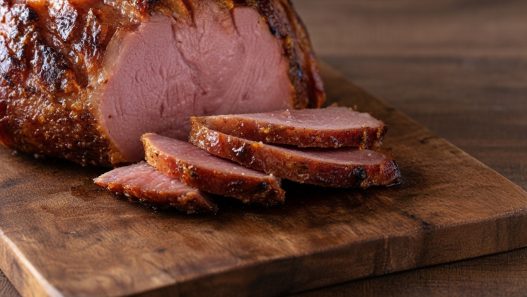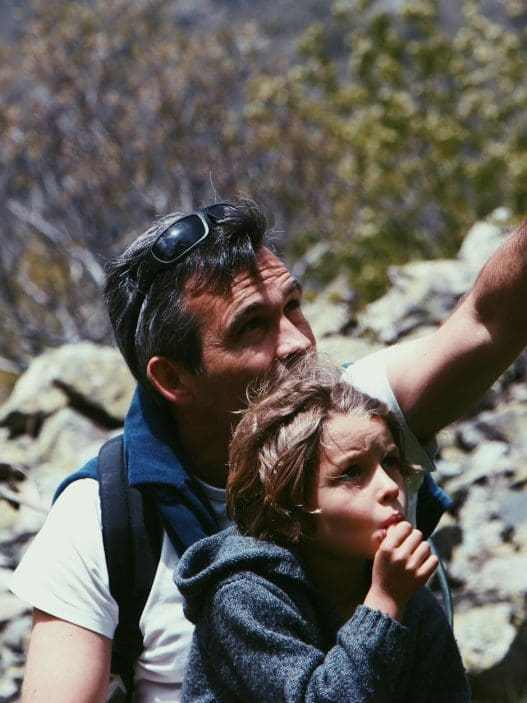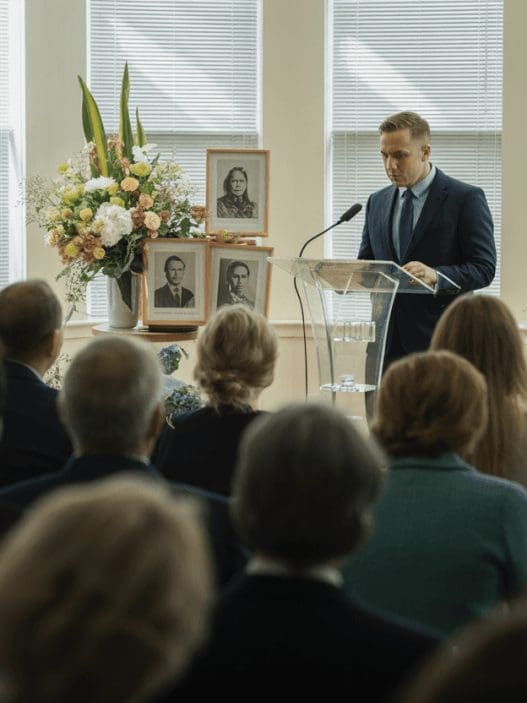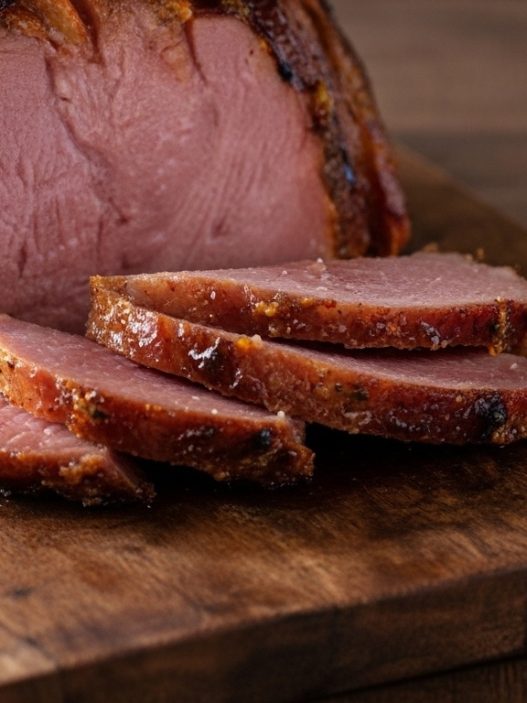Writing a funeral acknowledgment speech can be a deeply personal and difficult task to do. Every funeral acknowledgment speech will be unique to your loved one’s funeral. You may have certain family members you need to acknowledge, health care workers, friends and even people who worked with your loved one.
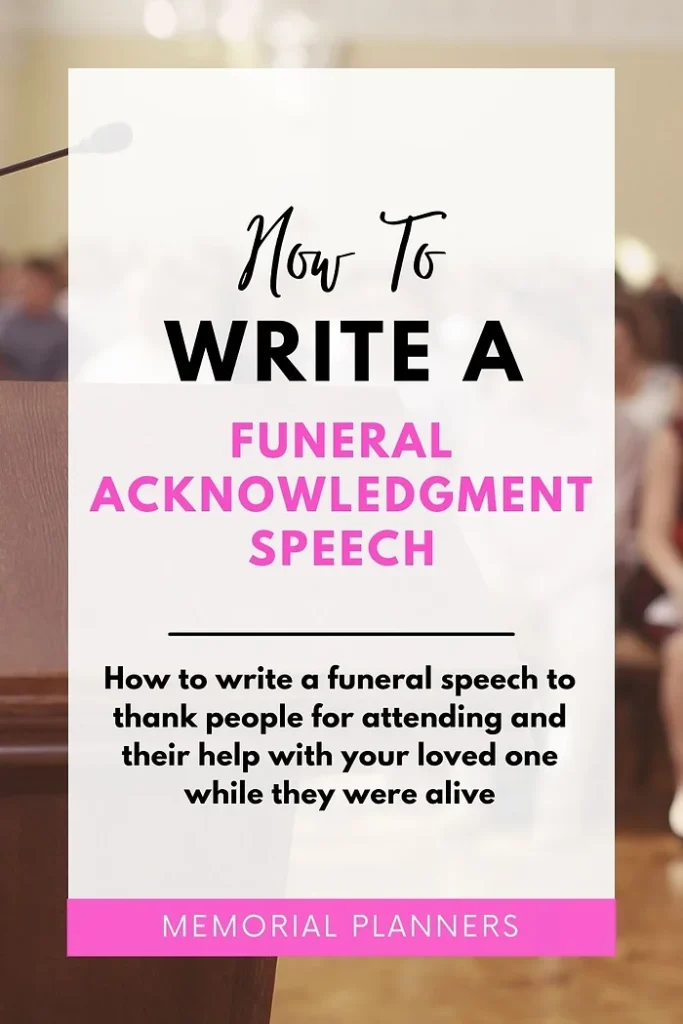
What you decide to write in your funeral acknowledgment speech will depend on your unique situation and the types of people who need to be thanked or acknowledged on the day.
When reading acknowledgments at a funeral it is best to have a structured speech that maintains a flow and set layout. For reading acknowledgments at a funeral we recommend starting with an introduction, continuing to thank individuals by name, thanking groups or charities who may have helped and then moving on to the conclusion. When reading acknowledgments at a funeral is structured in this way it helps you to maintain the flow of the funeral acknowledgment speech.
We have put together some tips on how to write a funeral acknowledgment speech.
Table of contents:
Writing an introduction for a funeral acknowledgement speech
Example of funeral acknowledgement speech introduction
How to thank individuals in the funeral acknowledgement speech
Example of funeral acknowledgement to thank individuals
How to thank groups of people in a funeral acknowledgement speech
Example of how to write funeral acknowledgements to thank groups
How to write a conclusion for a funeral acknowledgement speech
Example of how to write a conclusion for a funeral acknowledgement speech
Start with an introduction for your funeral acknowledgment speech
When starting any speech it is always good to start with a brief introduction. Welcoming everyone thanking everyone and then introducing yourself and how you were connected to the deceased can be the perfect place to start.
“Hello everyone, thank you for attending the funeral of X today. We appreciate the love and support each one of you has shown us. My name is X and I am the Y (partner) (friend) (cousin) (brother/sister) of the deceased”
You can then speak fondly on some of the positive traits the deceased had while they were alive – “X was a (happy), (joyful), (full of life), (adventurous)” are all potential ways you could introduce your loved one. A short story on something the deceased loved to do is a great way of easing into an acknowledgment speech and remembering your loved one fondly.
Funeral Acknowledgement Introduction Example:
“As we know X was a keen explorer. X spent most of their life living it to the full traveling from place to place and living life as it was meant to be lived. I remember when they used to call me I would never know what part of the world they were in. I always loved hearing about their latest adventure and I will miss them dearly.”
This is an example of how you can look back at a fond memory you have of your loved one before reading the acknowledgments.
An introduction like this can help break the ice and introduce both yourself and your connection with the deceased.
Funeral acknowledgments from the family
The family will often have certain individuals they would like to thank within the funeral acknowledgment speech. So it is important to ask other close family members if they have anyone, in particular, they feel needs to be acknowledged in the speech to make sure you don’t miss out on anyone.
Once you have a list of people who need to be thanked within the funeral speech this will help you structure the main part of your funeral acknowledgment speech.
Common individuals who may be acknowledged in a funeral acknowledgment speech may be:
- Certain friends who stayed by the deceased’s side
- Healthcare workers who cared for the deceased in the hospital or hospice
- A priest or religious person who prayed for the deceased
- Neighbors who checked in on the deceased when they needed help.
- Certain family members who went above and beyond to help the deceased
- People who worked with the deceased who helped them in a time of need
This section is to call out people by name who helped your loved one in their time of need. An example of this could be:
Funeral Acknowledgement Example:
The family of (deceased’s name) would like to thank the following people who helped (deceased name) in their time of need. We would like to thank (deceased’s name) neighbor Y who checked on them daily and brought them freshly cooked soup and homemade bread. X always enjoyed your visits and mentioned on numerous occasions how loved you made them feel.
To nurse X who made (deceased’s name) laugh in hospice daily and who always brought them an extra fruit cup. You made (deceased’s name) time in the hospital easier and we thank you for that.
(deceased’s name) co-workers who helped them cover shifts and looked after their work when they were unable to attend. We thank you for showing patience and kindness to (deceased’s name) in their time of need.
To our aunt who drove (deceased’s name) to their hospital appointments and stayed with them until all hours of the night until they were able to be seen. We couldn’t have given (deceased’s name) the level of care without you.
To Father X who prayed for (deceased’s name) every Sunday. Your prayers mean the world to us and we thank you for always keeping (deceased’s name) in your thoughts. We would also like to thank you for conducting today’s ceremony.
We would also like to thank (deceased’s name) friends. Without you (deceased’s name) would have had a much harder time throughout his illness. From the times you brought them fishing, to watch a movie and the countless takeaways that were consumed. I know (deceased’s name) loved all of you, as do we.
This is an example of how you can structure a funeral acknowledgment speech to call out individuals by name to thank them for what they did for your loved one during the time they were alive.
Thanking groups of people within your funeral acknowledgment speeches
Once you have acknowledged individuals who need to be thanked you can then move on to to acknowledging any groups of people who may need to be thanked.
Groups of people who may need to be thanked may have helped during the life of the deceased or they may have helped organise the funeral.
These individuals could be:
- Charities that may have helped
- Wider hospital staff
- Friends & family who sent sympathies and attended the funeral
- Caterers who provided food throughout the funeral
- Printers who helped you print funeral leaflets, programs
- Musicians or choirs who attended the funeral to sing
- The funeral director who helped you organize the funeral
- Any other group or organisation that helped with the funeral
Funeral Acknowledgement Example:
An example of how this part of the funeral acknowledgment speech could be written could be:
We would like to thank the people and individuals who helped our family and (deceased’s name).
First Charity X helped fund the treatment (deceased’s name) needed for X.
The wider hospital staff at (hospital name) who we know work long hours and put in extra care to help (deceased’s name) and people just like them.
The musicians / choir who have sung beautifully here today. Thank you for making (deceased’s name) funeral so special.
To the funeral directors who have helped us organise (deceased’s name) funeral.
To the printers X who have printed such beautiful leaflets so we can remember (deceased’s name).
Finally to everyone here both family and friends who have sent flowers, and sympathies and who have attended the funeral. We thank you for your support, kind words and cards. Your love has meant the world to us and has allowed us to find strength in this difficult time.
How to write a conclusion for a funeral acknowledgment speech
To finish your funeral acknowledgment speech you can conclude your speech with a final message of farewell and gratitude. You can reflect on the legacy your loved one leaves behind and the lessons they taught you. This can also be an opportunity to encourage attendees to continue supporting each other as they navigate through their grief and to keep the memory of your loved one alive in their hearts.
Sometimes a quote or a funeral poem can be the perfect way to end a funeral acknowledgement speech.
Sample of funeral acknowledgment wording for the conclusion
As we prepare to say our final goodbyes to [Name of deceased], I am reminded of the words of poet Mary Elizabeth Frye: ‘Do not stand at my grave and weep; I am not there. I do not sleep. I am a thousand winds that blow, I am the diamond glints on snow.’ Though [Name] may no longer be with us in body, their spirit lives on in the memories we hold dear and the love we share. Let us carry their light forward, embracing each day with the same zest for life and kindness that [Name] exemplified.
As we part ways today, let us find comfort in knowing that [Name] will always be a part of us, guiding us with their wisdom and love. Thank you all for being here to honor the memory of [Name] and for the love and support you have shown during this difficult time. May we find solace in each other’s company and strength in the memories we hold dear. Farewell, dear [Name], until we meet again.”








